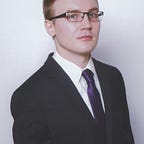This Week in World Religion 2018–10–29
“Time and history have revealed almost countless Gods. However, in some countries, more and more people are choosing to believe in none.
In Switzerland, where religious freedom is set out in the constitution, the portion of the population with no religious affiliation is approaching 25%, according to figures for 2016 published this year.
In Switzerland, religion is a cantonal matter, and in some cantons nearly half of the population belong to no religion.”
Source: https://lenews.ch/2018/10/28/switzerlands-religious-decline-continues-by-canton/.
“EDITOR — The greatest threat to the future of our once humble, tolerant a caring and loving society is now religion.
All the problems we encounter in our society — the shifting of government, Aids, terrorism, diseases and weapons of mass destruction — are simply the tools used by religion.
More wars have been fought in the name of religion than any other influence.
Why is religion so powerful and controlling? Why it is more powerful than politics? Religion is not just a social, cultural, political or ideological factor. Instead it finds power in the personal chamber of the soul of the individual.”
Source: https://southlandssun.co.za/100711/why-religion-is-greatest-threat-to-our-society/.
“All men traverse through different stages of their lives and those who embark on the journey in quest of knowledge often find themselves in a perplexing situation. When one delves deep into different subjects, more queries take birth in one’s mind. Resultantly, all the notions that were instilled in his mind start to get weak, he starts to challenge the validity of ideas he once held near to his heart, the beliefs he stood with unequivocally once, now all of a sudden they stop making sense.
While going through all this an average person starts to think about everything from an analytical perspective and his new romance with science compels him to see everything through the lens of science which means if it cannot be measured, felt and proven it may be dismissed altogether. Furthermore, as one reads books like “A brief history of time.” By Stephen Hawkings he thinks that science has answer to everything and slowly starts to adapt science as his new religion and believes every commandment of science as final verdict.
However, when he spends some more time in this state and reads more about the fickle nature of science only then it dawns upon him that even science is not able to answer all the questions. Likewise, Mr Stephen Hawking once gave an idea of some sort of super power behind all the laws of physics and creation of this universe but in his final book “Brief Answers to the Big Questions “which has been published posthumously on October 16,he states that “There is no God. No one directs the universe,”.”
Source: https://dailytimes.com.pk/315730/science-and-religion-2/.
“There is undeniable historical truth that institutionalized religion has functioned to back a ruling power and the social classes it has privileged (as with the Church of England under the Restoration following England’s Civil War, or France’s Catholic Church following the Franco-Prussian War to “expiate the crimes of the Commune”). Nonetheless, there is also a strong historical current, both in the Anglo-American Puritan tradition and among French free thinkers, whether Catholic or Protestant, that religion provides a moral conscience that is as natural to reason as it is compatible with it. Moreover, this moral conscience that religion encourages provides a means to check the ruling power, and even a duty to rebel when that power imposes unethical, dishonorable, dishonest, or unfair burdens on citizens. Such, for example, is the sentiment expressed by the motto “Rebellion to Tyrants is Obedience to God,” which Benjamin Franklin and Thomas Jefferson proposed for America’s Great Seal.”
Source: https://www.psychologytoday.com/intl/blog/in-gods-we-trust/201810/the-role-religion.
“When he campaigned for president in 1976, Jimmy Carter often invoked the late theologian Reinhold Niebuhr and his admonition that “the sad duty of politics is to establish justice in a sinful world.” That sort of faith-inflected speech from a major national politician was new to most voters. So was the candidate himself, a former Georgia governor who taught Sunday school and described himself as born again, an obscure term for many millions of Americans.
Mr. Carter managed, narrowly, to win that first post-Watergate national election. As president, he put liberal aspects of his Baptist tradition front and center, whether appealing for racial equality, lamenting economic disparity or making human rights concerns integral to American foreign policy. What he did not win were the hearts and minds of his white co-religionists.”
Source: https://www.nytimes.com/2018/10/28/us/religion-politics-evangelicals.html.
